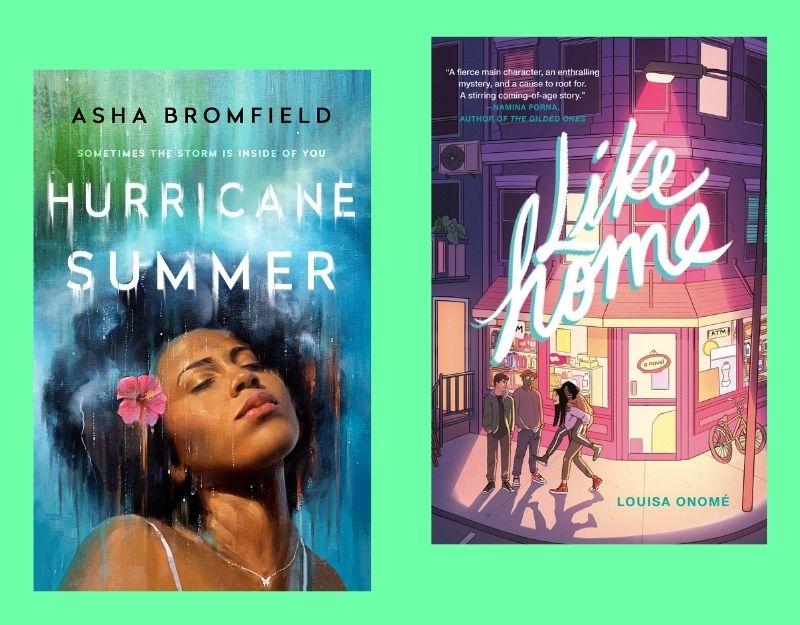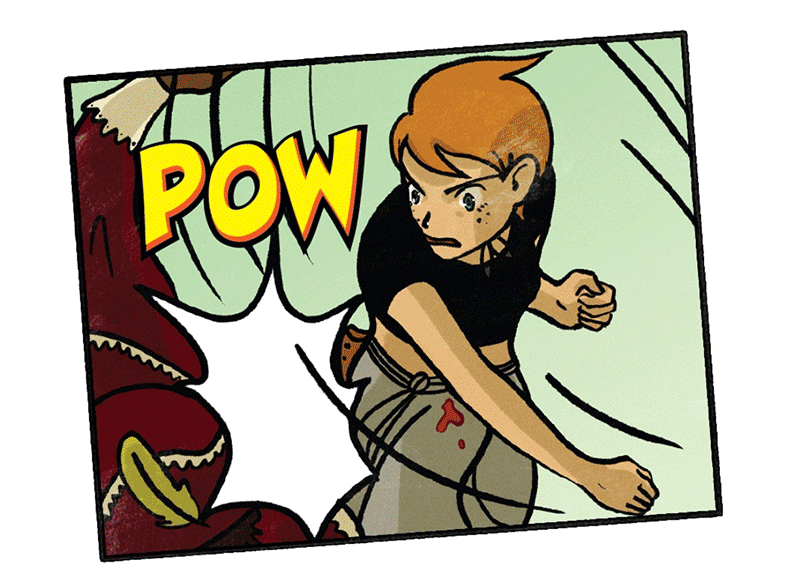Sunday Reflections: What if we are our own worst enemies? A reflection on librarianship.
“I think now, looking back, we did not fight the enemy; we fought ourselves. And the enemy was in us.” – Platoon
When I was a teen, I was obsessed with the movie Platoon, in large part because Charlie Sheen was one of my James Deans. Yes, I know it turns out that he was absolute trash, but we didn’t know it at the time. But because of this obsession, I had purchased the Platoon soundtrack – on vinyl thank you very much – and memorized the closing speech which contains the line above. The line above has always stuck with me and I keep thinking about it lately in terms of the MLS and the devaluing of libraries, in part through the devaluing of the library profession by none other than librarians. Hear me out.
Before I begin, let me just take a moment to say that I have the utmost respect for paraprofessionals. I myself started out as a paraprofessional YA associate before choosing to go on and get my MLS. Some of my best friends are paraprofessionals, including my best friend who happens to be a nondegreed director of a small, rural library. Our very own Amanda MacGregor, who is my most trusted reviewer and someone I go to frequently for advice and information, is not an MLS librarian, though I believe you all know I love, value and respect her fiercely. This is not a diatribe against paraprofessionals or anyone who works in the library; it is, however, a reflection on how we talk about the profession and the lingering effect it has and how people perceive the value of the library.
ADVERTISEMENT
ADVERTISEMENT
Time and time again, I hear many people talking as if the MLS no longer matters in any way, shape or form, and this concerns me. There is even, recently, a vote discussing whether or not the director of the ALA – the American LIBRARY Association – should hold an MLS. And I was surprised by how many people felt that this prerequisite was an obviously absurd idea. I feel quite differently about this; I believe that the director of the ALA should be a person who holds an MLS from an ALA certified school. To me, to forgo putting someone with an MLS as the director of the ALA would be like putting someone who doesn’t have a background in psychology in charge of the APA or someone who isn’t licensed in medicine in charge of the AMA. I want someone who has the education, knowledge and experience to be directing the organization.
But it’s not just about whether or not the director of the ALA should hold an MLS. More and more, I hear professional librarians talking as if the MLS education is completely unnecessary, and I would argue that this is harmful to our profession. What we say and do matters and transforms how people think about our profession. If we ourselves devalue our profession, than why shouldn’t our public, including community boards and legislators? I think of it somewhat as branding, and we are hurting our brand.
One of the last library systems I worked at went from having a staff of around 80 people and 12 MLS librarians to around 40 employees and only 2 MLS librarians. All specialists, including children’s librarians, were done away with. But of course, none of the services or programming were, so now fewer and less invested people are tasked with doing the same responsibilities. At another library, the retiring MLS director was replaced with the city’s marketing manager who had never worked in the library. The benefit is that the library gets a lot of good marketing, but the daily business of the library – it’s philosophy and foundations of the library in the community – was no longer at the core.
In contrast, at one system I worked at an individual from the business world was hired to be an operations manager, but this person worked closely with the library director, an experiences MLS librarian, to keep the foundations of librarianship at the center while blending those ideals with that of the business world to keep the library moving forward in terms of budgeting and HR practices.
But what happens when we start saying that librarians and librarianship aren’t really necessary in libraries? What happens when we devalue professional librarians? I would argue that those outside the library community see this and take that discussion one step further. If librarians aren’t important, if the education and experience isn’t important, then perhaps libraries themselves aren’t that important?
How many times have I, an MLS librarian, been asked if I am a volunteer? Too many too count. How many times have I been asked why I need a degree to do my job? Again, too many to count. The truth is, we don’t do a very good job of informing our public about what we do, why it matters, and why having educated and professional librarians involved in the library is important. And if it doesn’t really matter, then why should our communities support them with their tax monies?
Have you ever worked at a library where it has been suggested that staff could be let go and replaced by volunteers? I have, and it’s very disheartening. But I also think, we do this to ourselves in some ways. When staff are reduced, workloads are not reduced in kind. We replace retiring professionals with paraprofessionals to reduce staffing costs and the library is populated with fewer and fewer librarians. Sometimes, there are no professional librarians to be found.
This conversation gets tricky because not all libraries are the same. For example, there are a lot of small, rural libraries out there being well run by passionate paraprofessionals and a just a handful of staff to cover the circulation desk. You can not compare a small rural library with a large urban library system, it’s like comparing apples to oranges. But when even our largest library systems begin to do away with professional librarians, it definitely communicates a message to the larger public about the value of both librarians and libraries. And I would argue that this message is not in our favor.
These past few weeks we have seen public school teachers fighting for respect and pay that matches their job. We demand of our teachers a degree and hold them to a standard, and yet teachers are another maligned profession. We do not culturally value teachers, in part I would argue because it is seen as a feminized profession, much as librarianship is. But these past few weeks, teachers have united together and demanded to be fairly compensated for their work.
In comparison, I continue to see librarians degrading the profession in the ways that we talk about our field, in the ways that we don’t demand adequate compensation for our jobs, or the ways in which library directors eliminate professional staff and professional development when forced to make budget cuts.
As I mentioned, I was a paraprofessional before I became an MLS degree holding librarian. I have been dedicated and passionate about my job every step of the way. But getting my degree changed who I was as a librarian. My education really helped me understand so many aspects of both my job and my teens. It made me a better librarian.
The irony is that today, when I hear people say that they want to get their MLS, my knee jerk reaction is that I want to tell them not to do it. Not because I don’t believe in it, I think it has tremendous value and I think it helps establish us as a profession. No, I want to tell them not to do it because I understand that the job prospects for MLS librarians are shrinking. Libraries now hire fewer and fewer librarians, and we are often inadequately compensated salary wise for our level of education and experience. Many libraries now only want to hire degreed librarians in management positions, though it is hard for MLS librarians to get the experience required for those positions because we aren’t hiring librarians in non-management positions for them to get the necessary experience.
ADVERTISEMENT
ADVERTISEMENT
So yes, I would like the director of the American Library Association to hold an MLS degree from an ALA certified school. To me, that helps communicate the value of the library profession to the public that we serve. I would also, for the record, like the ALA to spend part of its financial resources marketing the idea of libraries to the general public in much the same way that you see the AMA marketing the medical field to the public. And for the record, I am not an ALA member because I can’t afford the fees.
But this post isn’t really about the director of the ALA, as I mentioned, I’m not an ALA member and I don’t get a vote. But what this post is, I hope, is a reflection on how I worry that we librarians have become our very own enemies when it comes to branding and marketing of libraries. If we continue to devalue the educational foundation of our profession, does that not in some way devalue the idea of libraries themselves? I would argue that it is possible that it does and we see that in the ways our boards ask us to replace full-time professional positions with 2 part-time paraprofessional positions and the ways in which our legislators slash our hours and our budgets.
The conversation is, of course, bigger than this post. For example, do we need age specialists? I would argue that we do. I know that my teens are better served because they have a librarian who has taken the time to study adolescent development, just as babies are better served by someone who has studied early childhood development. And of course, there is something to be said about paraprofessionals who have worked with and trained with good, quality librarians. And there is something to be said about how overwhelmingly white our profession is and about how in a profession dominated by women men rise to leadership positions faster and more often. These are all valid conversations that we need to be having.
My point is this: I would like us all to consider the ways that we talk about our profession, our education, our experiences, and the very concept of a library and to consider the ways in which we may be undermining our very own profession. I want us to consider whether or not we are being our own enemies and to make the changes necessary to be advocates instead.
Filed under: Sunday Reflections
About Karen Jensen, MLS
Karen Jensen has been a Teen Services Librarian for almost 30 years. She created TLT in 2011 and is the co-editor of The Whole Library Handbook: Teen Services with Heather Booth (ALA Editions, 2014).
ADVERTISEMENT
ADVERTISEMENT
SLJ Blog Network
2024 Books from Pura Belpré Winners
Passover Postings! Chris Baron, Joshua S. Levy, and Naomi Milliner Discuss On All Other Nights
Winnie-The-Pooh | Review
Parsing Religion in Public Schools
ADVERTISEMENT









Someone asked me to post this comment anonymously for them:
I’ve been thinking about this a lot, too, as someone who feels both proud of my MLIS and like the vast majority of my library school experience was a waste of time. I graduated library school a few years ago, attending immediately after college, and I’ve often felt that the actual amount of useful knowledge and experience I gained, time-wise, could have been condensed into one semester–perhaps even one course. This shouldn’t be the case, and I don’t *want* that to be the case–I’d muchrather have a more rigorous program rather than a shorter one. I know this was just one experience at one school, but I’ve heard that experience reflected across schools and across generations (obviously with exceptions). In order for us to respect and value our own degrees, I think library schools need to put more effort into respecting the time, money, and passion of their students and demonstrate that *they* believe in the value of the degree. Maybe that would be a good start?
Thank you for this article. I’ve had many different roles in libraries, first as a shelver in a public library, then a para in a school library, and back to public libraries doing teen programming. I am working towards my MLIS now. Before I started my masters I would look at librarian positions scoffing and think to myself that I could do that job without the degree. Having now taken several MLIS classes I can see the value of having the degree. It has significantly changed how I view my current job and the library world as a whole. Even though I have several years before I get my degree, every class I take changes how I do my job. I very much look forward to getting my MLIS and becoming a librarian.
I do agree with the previous comment, that library science schools need to take a hard look at the rigidity of their programs. I would also add that you get out of the school what you put into it. You can create a more rigorous program for yourself. There are understandably situations and circumstances where this isn’t possible, just something to consider.
Thank you for putting into words things that have worried me for a long while.
I have an MLS degree and I’m definitely a specialist– children’s librarianship is what I DO, it’s what I’m good at. Management on the other hand is a thing I’m TERRIBLE at– I’m not cut out for it at all, no amount of training would ever change that. When I was looking for a job, I was so frustrated by how many positions I was turned down for because they were, in the interviewers’ words, “beneath my education level,” and then other places, I’d go in looking to be their children’s librarian, and they’d interview me for a directorship or other managerial position and we’d both leave those interviews thinking I’m a useless idiot, because my mind just doesn’t work that way. I luckily slipped into my current position only because the library wanted someone with an MLS to run their one-room branch resource room a couple evenings a week, and they figured it would just be a supplemental position to someone with a full-time job elsewhere, but I had a six-month-old and a couple evenings a week was exactly what I needed to ease my way back into the workforce. Then, as I got to show off more of my true talents, and the tiny branch library closed, I moved on up in responsibilities and now I’m in charge of the children’s collection, doing outreach storytimes, and running periodical family programs in-house. BUT I am still paid way below the average for someone with my level of experience and education, and yet, still, many on the library board look at my pay– which, although low for a librarian, is still higher than what the paraprofessionals at our library make (which is also too low for THEM)– and are like “WHY do we keep her on? She’s too expensive when the others make less than her.” Because honestly I think the board assumes that because teenagers and volunteers can work circulation, every other job must also be a minimum wage anybody-can-do-it thing, too… truly it’s like they hire people as circulation staff and expect them to volunteer their talents toward programming, purchasing, etc, etc. I’m honestly a little paranoid that the board thinks I’m a strain on the budget, not just because of my pay, but because I insist on wanting to keep the children’s department stocked with high quality new books and don’t we have enough books already? *sigh* Anyway, thanks for this kind of cathartic discussion.